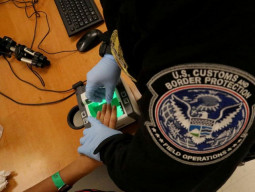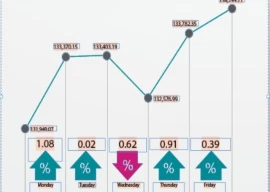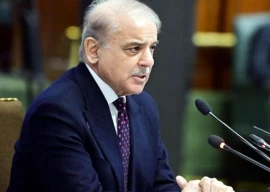
Pakistan and India will begin trade negotiations today (Thursday), with Pakistan seeking greater access to Indian markets before it abolishes its negative list of tradable goods. The list currently contains 1,209 items that cannot be imported from the neighbouring country.
India’s trade policy also bars some Pakistani exports, using an Islamabad-specific sensitive list maintained under the South Asian Free Trade Area (Safta) agreement.
In hopes to achieve a breakthrough over trade restrictions, a 19-member delegation headed by the Indian commerce secretary has reached the capital on Wednesday. Both sides are also expected to sign three trade agreements addressing issues regarding non-tariff barriers (NTBs).
In this regard, commerce secretaries from both countries will hold talks on September 20 and 21. They will discuss phasing out the negative list; the opening of a second land route through the Wagah border; and preferential arrangements under the Safta agreement, according to the Ministry of Commerce. Both sides will also review other broader areas of cooperation; including power, petroleum products and the opening of bank branches in each other’s country.
Both sides wish to review progress on decisions taken during Indian Commerce Minister Anand Sharma’s visit to Islamabad in February this year; which had culminated in an ambitious joint statement on setting up an agenda to normalise relations in less than a year. A recent visa relaxation agreement – signed during the Indian Foreign Minister SM Krishna’s visit – will provide the impetus for further talks.
Outcomes will determine whether Pakistan decides to abolish its negative list by the end of December, granting what is commonly dubbed as the Most Favoured Nation status to India. The decision to designate India as an MFN country has already been made, in principle, given India eases its import restrictions.
In the last week of August, India reduced its sensitive list for Pakistan by 30%; from 878 to 614 tariff lines. This will help reduce peak tariff rates to 5% within three years. But India did not exclude items in which Pakistan enjoys a competitive edge, especially textile products, said a commerce ministry official.
“A review of the reduced sensitive list will be the most important agenda for Pakistan,” he added.
The two sides will also sign three agreements that pertain to NTBs. Memorandums of Understanding for these three agreements had been signed during an earlier visit of the Indian commerce minister to Pakistan.
During negotiations, agreements will be inked for Cooperation and Mutual Assistance in Customs Matters; a Bilateral Cooperation Agreement between the Pakistan Standards and Quality Control Authority and the Bureau of Indian Standards; and on Redressal of Trade Grievances, said the commerce ministry.
But even as the two traditional rivals strive to move ahead, misgivings persist.
“We are suspicious of India’s sincerity in making SAFTA work, as India has two separate sensitive lists for the Least Developed Countries (LDCs) (Afghanistan, Nepal, Maldives, Bhutan) and non-LDCs (Sri Lanka and Pakistan) in Safta,” former commerce secretary Zafar Mahmood had said, while delivering a lecture at the Woodrow Wilson Institute in April this year. Mahmood played a key role in convincing the Pakistani establishment to normalise trade ties with India.
He also stated that: “The Indian sensitive list for non-LDCs is almost Pakistan-specific and restricts market access for Pakistani products, as New Delhi has already signed a Free Trade Agreement with Colombo, nullifying the sensitive list.”
“Because of the past experience of exporting to India, the private sector complains of non-cooperative attitude of import regulators in India and has apprehensions on the smooth operation of the three facilitation agreements,” Mahmood had said. He had gone on to state that the private sector apprehended that India will find ways to nullify the effectiveness of these agreements.
Published in The Express Tribune, September 20th, 2012.


















COMMENTS
Comments are moderated and generally will be posted if they are on-topic and not abusive.
For more information, please see our Comments FAQ